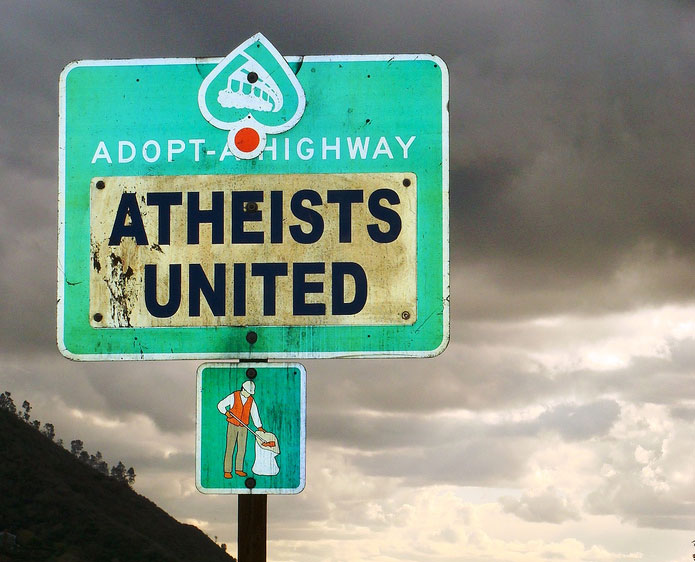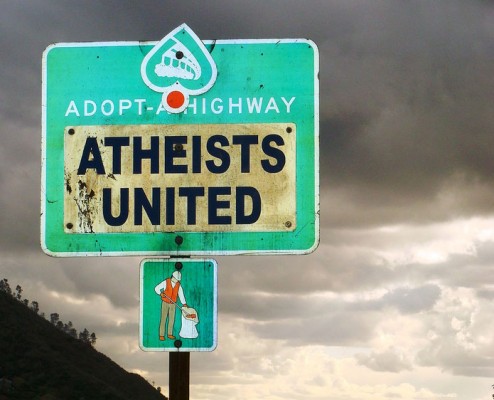
Is it better to be a devout atheist than to be a casual (enter name of religion here)?
- By Alison Lesley --
- 01 Jul 2013 --

In a recent article in The Huffington Post, Andrew Schwartz writes about the strong rhetorical skills that atheists have. He asserts, “Today, atheists are armed with the answers Darwin gave and a modern metaphysics that allows them to confidently argue against religious rhetoric and comfortably say that there is no god.” True enough, it is a more common experience (at least on my end) to come across atheists that can fully back up their faith (or the lack of it) and explain just why they won’t believe that God exists. Though some would argue that atheists are not spiritual, this is not true at all; there is such a thing as “atheist spirituality.” If one searches for books on the subject, there are plenty. There is the “Little Book of Atheist Spirituality” and “I Don’t Have Enough Faith to Be an Atheist.” Apart from being spiritual, atheism is also about taking an intellectual, positivist stance on ontological issues. Because of the highly logical and intellectual reasons atheists usually cite for their version of spirituality, it is not uncommon for an atheist to arm himself with ammunition to fire off in debates about the existence of God. And because a believer usually takes truths by faith, it is far more easier and convenient to believe in an atheist, who calls upon the wisdom of logic and science. This is probably why “the new ideology of this age certainly is atheism,” as Schwartz asserts. Sectarianism has been dropped in favor of secularization, and it is much harder to reveal one’s religious affiliation than it is to reveal one’s lack of it. Being partial to one belief is a new taboo; eclectic universality is favored above the political incorrectness of religiosity. A case in point, being careful not to say “Merry Christmas” in the yuletide season and eschewing it for the more generic greeting of “Happy Holidays.” But it is Christmas isn’t it? Can’t we even say that? No, lest we offend those who do not believe in Christ or the existence of a God.
What then is the role of believers in an age of atheism? How can believers arm themselves to keep their faith intact and be able to defend it? And more importantly, do “believers” of this age care enough to risk looking biased and opinionated when they defend their own belief? Schwartz argues that the church is still at the center of charitable activities – hence they’ve established their role in the betterment of society. With religion’s pivotal role in helping people live better lives physically, socially and economically, those who do believe should actively learn more about their religion, be prepared to argue for it when it is being questioned, and more importantly actively practice it in their daily lives. One of the main reasons that so many are tempted to abandon belief is that so many of those who claim that they believe are not very good ambassadors of their chosen religion. If someone asks you why you believe in the Bible, or the Q’uran or the Tanakh, you have to be able to give a strong answer. Sadly, I think the biggest reason why so many get turned off by religion is not because of religious doctrines and teachings, but the example of the lives of believers themselves.




















